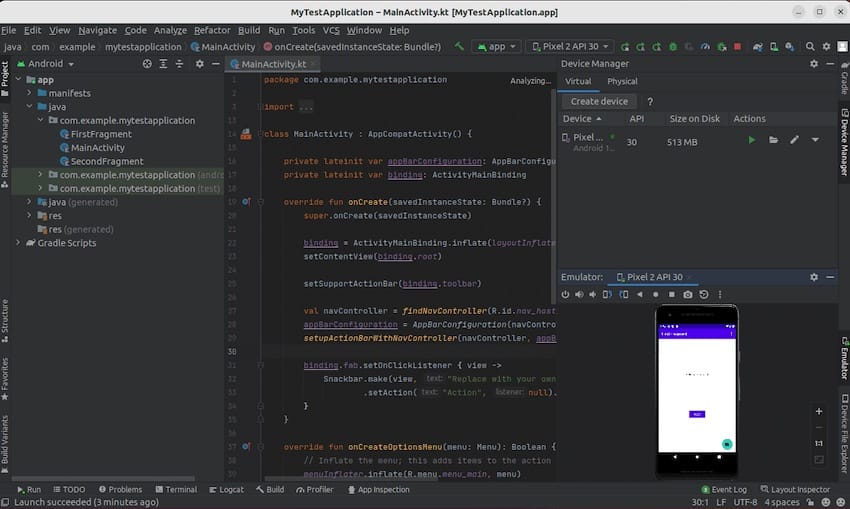
In this tutorial, we will show you how to install Android Studio on Fedora 35. For those of you who didn’t know, Android Studio provides the fastest tools for building apps on every type of Android device and is currently the official Google Android IDE. Android Studio offers world-class code editing, performance tooling, debugging, a flexible build system, and an instant build/deployment of android applications thus helping accelerate the build process. It is available for Windows, Linux, macOS, and Chrome OS.
This article assumes you have at least basic knowledge of Linux, know how to use the shell, and most importantly, you host your site on your own VPS. The installation is quite simple and assumes you are running in the root account, if not you may need to add ‘sudo‘ to the commands to get root privileges. I will show you the step-by-step installation of the Android Studio on a Fedora 35.
Prerequisites
- A server running one of the following operating systems: Fedora 35.
- It’s recommended that you use a fresh OS install to prevent any potential issues.
- SSH access to the server (or just open Terminal if you’re on a desktop).
- A
non-root sudo useror access to theroot user. We recommend acting as anon-root sudo user, however, as you can harm your system if you’re not careful when acting as the root.
Install Android Studio on Fedora 35
Step 1. Before proceeding, update your Fedora operating system to make sure all existing packages are up to date. Use this command to update the server packages:
sudo dnf upgrade sudo dnf update sudo dnf install zlib.i686 ncurses-libs.i686 bzip2-libs.i686
Step 2. Installing Android Studio on Fedora 35.
- Install Android Studio from the official source.
By default, Android Studio is available on Fedora 35 base repository. Then we can download and install Android Studio with the following command below:
wget https://dl.google.com/dl/android/studio/ide-zips/2020.3.1.26/android-studio-2020.3.1.26-linux.tar.gz
Next, extract the downloaded archive:
sudo tar -zxvf android-studio-*-linux.tar.gz sudo mv android-studio /opt/
After that, link the executable to /bin directory so that you can start Android Studio using the android-studio command:
sudo ln -sf /opt/android-studio/bin/studio.sh /bin/android-studio
Then, create a desktop entry so that you start Android Studio from the Activities menu:
sudo nano /usr/share/applications/android-studio.desktop
Add the following file:
[Desktop Entry] Version=1.0 Type=Application Name=Android Studio Comment=Android Studio Exec=bash -i "/opt/android-studio/bin/studio.sh" %f Icon=/opt/android-studio/bin/studio.png Categories=Development;IDE; Terminal=false StartupNotify=true StartupWMClass=jetbrains-android-studio Name[en_GB]=android-studio.desktop
- Install Android Studio using Snap.
Run the following command to install Snap packages to your Fedora system:
sudo dnf install snapd sudo ln -s /var/lib/snapd/snap /snap sudo snap install core
To install Android Studio, simply use the following command:
sudo snap install android-studio --classic
Step 3. Accessing Android Studio on Fedora.
Once successfully installed, open the path: Activities -> Show Applications -> Android Studio or use the following command from the terminal:
android-studio

Congratulations! You have successfully installed Android Studio. Thanks for using this tutorial for installing Android Studio on your Fedora 35 system. For additional help or useful information, we recommend you check the official Android Studio website.